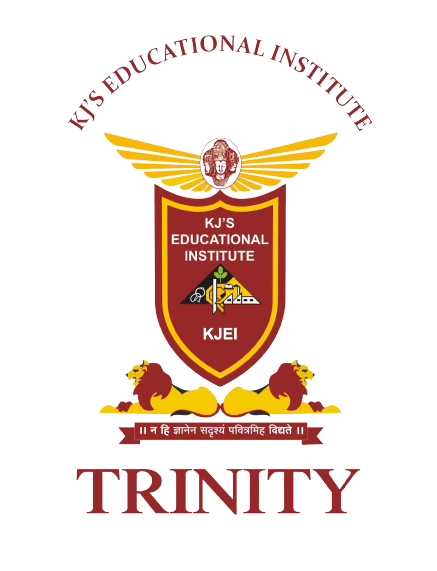
KJ's Educational Institutes
Trinity Academy of Engineering, Pune
( Approved by AICTE, New Delhi, Govt. of Maharashtra & affiliated to Savitribai Phule Pune University, DTE Code : EN6634)
Accredited by NAAC with ‘A+’ Grade

COMPUTER ENGINEERING
Research
R&D Cell has been established to promote and monitor the research Programs of the Department. R & D cell is headed by Dr. V. A. Suryawanshi (Assistant Professor). The cell administers all the research Programs. It monitors and coordinates the research Programs. The cell administers all the research Programs of the university by monitoring and coordinating the research Programs. The cell takes immense efforts to expose the students to recent developments in the technology through innovative project works.
Research Work and Projects currently in progress
B.E. Projects
Skin disease detection using image processing
One of the most common health problems in the world are related to skin. If we get the information about the dead skin which is not visible by naked eyes well in time then we can easily prevent the further spreading of disease on the other part of body. We proposed a skin disease detection method based on image processing techniques. The patient provides an image of the infected area of the skin as an input to the prototype. Image processing techniques are performed on this image and the detected disease is displayed at the output.
Smart School Administration
We are going to make a system that will do overwhelming task.to make a timetable it takes a very long time and man hours. Time table is made for varied functions wish to organize lectures at school and schools, to create timing charts for train and bus schedule and lots of a lot of. To create timetable it requires lots of time and man power .In our paper we have tried to reduce these difficulties of generating timetable by Genetics Algorithm. By using Genetic algorithm we are able to reduce the time require to generate time table and generate a timetable which is more accurate, precise and free of human errors.
Detection and Classification of Diabetic Prediction
Early Stage of Diabetic Retinopathy is Linked With Pre-Diabetes in human which causes Other Health issues or Gives birth to new disease. To avoid Blindness in early stage detection of retinopathy is essential. we focuses on decision about the presence of disease by applying ensemble of machine learning classifying algorithms on features extracted from output of different retinal image processing algorithms.
Bike Black Box
This project presents a step to the concept of bike black-box (known as Event Data Recorder) in developing a comprehensive vehicle safety system which would not only record the status of bike, but also try to prevent a possible problem which come across maintaining a vehicle. Black box is a system used mainly in Aero planes. These kinds of black boxes are used to record the flight data and maintain the records about the performance of the plane. The main purpose of the project is to develop a prototype of Black Box for vehicle diagnosis that can be installed into any vehicle. The bike black box system is used to collect the information like engine oil level, petrol level, carbon monoxide emission and we can provide specific services to the bike according to this data. So the motto is to develop an embedded integrated system consisting of a Rpi3 microcontroller, a power supply unit, sensors, memory, and a communication modules via WiFi.
Deep Neural Networks for Activity Recognition with Multi-Sensor Data in a Smart Home
Activity recognition plays an important role in providing assistance and care for users in smart homes. Multi-sensors can provide assistance to human by collecting the data of human activities. Using multi-sensor data in the research of pattern recognition is an area where rapid technological development is needed. Using deep learning with sensor data help us to analyze the sequence of activities recorded by a specific resident. Here, we are using various deep neural networks (DNN) i.e. Recurrent Neural Network (RNN). Advancement and development of deep learning makes it possible to perform automatic high-level feature extraction and thus, it achieves more promising performance in many areas. Since then, deep learning based methods have been widely adopted for the multi-sensor-based human activity recognition tasks.
Car damage and insurance claim analysis using deep learning
In this paper we consider the problem of car damage classification, where some of the categories can be fine-granular. We explore deep learning based techniques for this purpose. Initially, we try directly training a Convolute Neural Network. However, due to small set of labeled data, it does not work well. Then, we explore the effect of domain-specific pre-training followed by transfer learning. Experimental results show that transfer learning works better than convolutional neural network.
Real Time Vehical Security Using TPMS
Now-a-days health care environment has become technology oriented. Humans are facing a problem of unexpected death due to accidents caused due to the factor of human error or vehicle failure. So, we are developing a project to avoid such casualties by using Real-Time Vehicle Security System. In this system, it contains mainly three components or sub-modules in such a way that it reduces the risk of accidents as well as if accidents occur, the system will help the user for easy medical and legal support. This system helps the SOS support ie police and ambulance quick to the victims with the help of GPS shortest route tracing technology. With the help of this the life of the victims can be saved easily quickly and if any person is present with the victims, the person can monitor the SOS support with the help of android application..
Increase the security of data stored on Cloud using Morse Code Technology
Cloud computing offers utility -oriented IT services to users. Cloud computing provides us cheaper, faster, flexible, efficient environment. Cloud computing provides multitudinous benefits to both service provider and customer. Due to various advancements many companies are migrating to cloud environment. However, the security of cloud computing has been a challenging one. For increased security, the recommended approach is to combine two or more methods processes, the DNA sequences are used with Morse code and zigzag pattern, for encoding scheme. Use of Morse code and Zigzag pattern makes the attacker much harder to steal original data. Furthermore, the proposed scheme is implemented and the accuracy of encryption and decryption of data is verified.
Congestion Control in WSN by Using PDNC Method
This project presents a step to the concept of bike black-box (known as Event Data Recorder) in developing a comprehensive vehicle safety system which would not only record the status of bike, but also try to prevent a possible problem which come across maintaining a vehicle. Black box is a system used mainly in Aero planes. These kinds of black boxes are used to record the flight data and maintain the records about the performance of the plane. The main purpose of the project is to develop a prototype of Black Box for vehicle diagnosis that can be installed into any vehicle. The bike black box system is used to collect the information like engine oil level, petrol level, carbon monoxide emission and we can provide specific services to the bike according to this data. So the motto is to develop an embedded integrated system consisting of a Rpi3 microcontroller, a power supply unit, sensors, memory, and a communication modules via WiFi.
Detect Fake Identities of Bots vs Human Using Machine Learning
The social life of everyone has become associated with the online social networks. These sites have made a drastic change in the way we pursue our social life. Making friends and keeping in contact with them and their updates has become easier. But with their rapid growth, many problems like fake problems, online impersonation have also grown. There are no feasible solution exist to control these problems. In this project, we came up with a web application with which automatic detection of fake problems is possible and is efficient. This application uses classification techniques like machine learning algorithm. Fake accounts are a preferred means for malicious users of online social networks to send spam, commit fraud, or otherwise abuse the system.